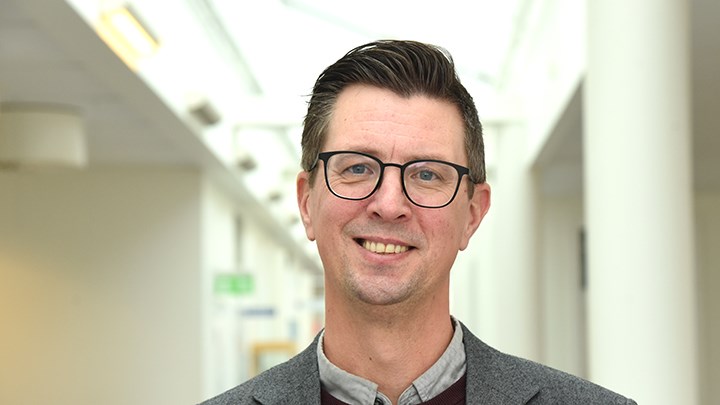Erik Hysing – new professor 2025

Erik Hysing is professor of political science.
His research focuses on the political decisions and governance that are required to enable society to move towards sustainability.
“This theme has followed me ever since I wrote my doctoral thesis. But my focus has varied over time and moved between different fields,” says Erik Hysing.
1977 Born in Falun
2010 Obtained his PhD in political science with his thesis Governing towards Sustainability – Environmental Governance and Policy Change in Swedish Forestry and Transport, Örebro University
2014 Docent in political science, Örebro University
2023 Professor of political science, Swedish University of Agricultural Sciences
2024 Professor of political science, Örebro University
Today’s society is in many ways unsustainable. Change and transition are needed to counter and manage climate change, biodiversity loss, and the spread of hazardous chemicals. As these problems become increasingly apparent, the need for changed cultural, economic, social, technological, and political structures has become increasingly recognised.
“Society does not automatically become more sustainable, and environmental problems are shared problems that require joint action,” says Erik Hysing.
His research has focused on the design and change of policies and control instruments in forestry policy. He has also examined how public and private actors cooperate and collaborate on hazardous chemicals. Other areas of research include civic engagement and understanding the resistance to a transition to more sustainable transports.
An increasingly important part of Erik Hysing’s research is how environmental policy can gain support and acceptance with citizens – and understanding and managing resistance to political measures.
“It is not sustainable to push through change without support of the people, and policymakers and those in power bear a heavy responsibility to rally popular support for a transition.”
Many have power and influence
Largely, Erik Hysing’s research concerns new forms of governance. The state has had and still has overall responsibility for the governance of society and for managing environmental problems. But governance is today done in many ways and in a more complex and fragmented landscape where many different stakeholders exercise power and influence.
“In addition, businesses, organisations, and individuals are expected to take voluntary responsibility for the environment. In my research, I have studied how networks and collaboration are formed with the aim of getting various stakeholders to act and take responsibility, for example, for phasing out harmful chemicals or for increased road safety.”
It is also important to understand what goes on in municipalities, authorities, and other public organisations. In both the design and change of policy and the work with new forms of governance, such as networks, people in public administration play important roles. Erik Hysing’s research examines how civil servants view their role and what they do to drive the sustainable development efforts.
“Multidisciplinary research is exciting”
Over the years, a lot of his research has been conducted in various interdisciplinary and multidisciplinary settings. His doctoral studies, for instance, were pursued as part of the multidisciplinary graduate school Urban Studies at Örebro University.
“Working in multidisciplinary environments where several researchers approach a problem or theme from different perspectives and specialisations, often generates new, exciting ideas and contributions. At the same time, I do think it’s important for research to be subject based.”
Understanding is key for sustainability
One goal for Erik Hysing is for his political science research to provide a better understanding of governance and the various structures, processes, mechanisms, and actors involved – an understanding that is crucial for society to change in a sustainable direction.
Erik Hysing has taught various courses in political science, public administration, and urban planning. He has been head of subject for political science at Örebro University and research group leader at the interdisciplinary Center for Environmental and Sustainability Social Science.
